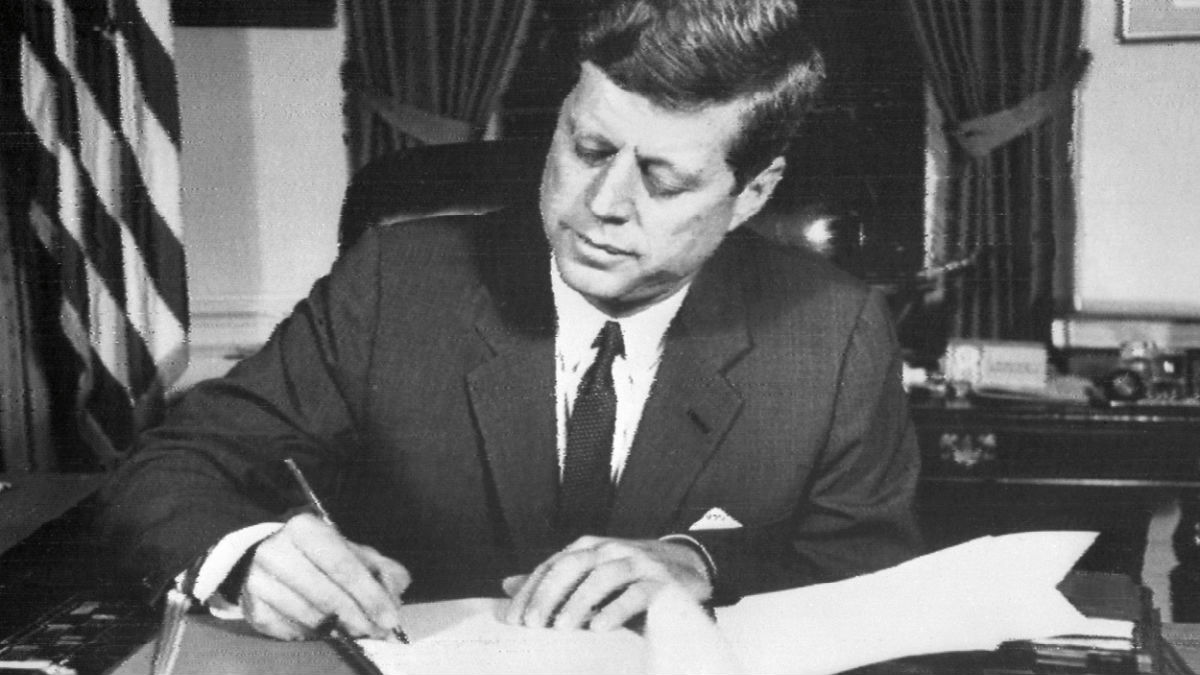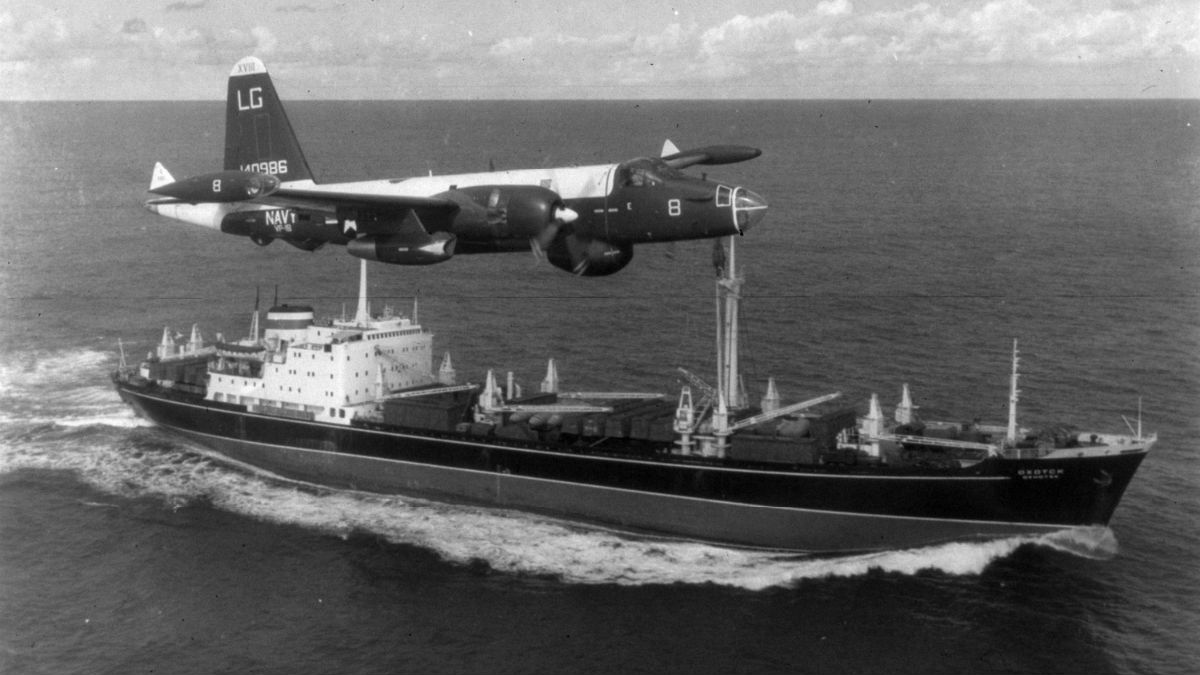The Cuban Missile Crisis – how close to nuclear war did we get?
53 years ago today, a nuclear war between the US and USSR was narrowly averted after Khrushchev 'blinked'

A free daily email with the biggest news stories of the day – and the best features from TheWeek.com
You are now subscribed
Your newsletter sign-up was successful
On 28 October 1962 the Cuban Missile Crisis came to an end. Russian premier Nikita Khrushchev announced on Radio Moscow that the USSR would be removing the nuclear missiles it had stationed on the Caribbean island of Cuba, roughly 90 miles from Florida.
In the words of the then US Secretary of State Dean Rusk, "We were eyeball-to-eyeball and the other fellow just blinked."
The USA already had a fractious relationship with the island state of Cuba before the crisis. In 1961, a CIA-sponsored invasion attempt to overthrow the communist Cuban leader Fidel Castro had failed miserably in the Bay of Pigs.
The Week
Escape your echo chamber. Get the facts behind the news, plus analysis from multiple perspectives.

Sign up for The Week's Free Newsletters
From our morning news briefing to a weekly Good News Newsletter, get the best of The Week delivered directly to your inbox.
From our morning news briefing to a weekly Good News Newsletter, get the best of The Week delivered directly to your inbox.
Castro wanted to be defended against a full-scale US invasion but Khrushchev's main reason for placing the missiles with his communist comrade was that there were American missiles stationed in Turkey, close to the USSR.
It was a game of political brinkmanship, but to this day remains the closest we have ever got to nuclear annihilation.
14 October 1962
Photos taken by US spy plane missions show evidence of ballistic nuclear missiles, transporters and bunkers on Cuban soil.
A free daily email with the biggest news stories of the day – and the best features from TheWeek.com
16 October 1962
ExComm (the Executive Committee of the National Security Council) meets at the Whitehouse to debate how to respond to the threat.
Eventually the decision is made to make a public declaration of a naval blockade of the island in order to prevent further missiles from being delivered.
22 October 1962
President John F Kennedy speaks to the American people, announcing the blockade and challenging Khrushchev to remove the weapons.
The biggest US troop invasion force since D-Day, gathers in Florida in preparation.

24 October 1962
US Strategic Air Command is ordered to Defcon (Defence Condition) 2, the highest level it has ever reached.
Over Europe, American bombers are in the air 24 hours a day. Each bomber carries nuclear weapons, each one has a target and each one is ready to launch at a moment's notice.
25 October 1962
14 Soviet ships turn back from the blockade.
26 October 1962
Khrushchev offers Kennedy a deal by letter – they will remove missiles in return for an end to the blockade, and a promise not to invade the island without direct provocation.
27October 1962
Kennedy replies to Khrushchev's letter accepting the offer.
By secret agreement the Turkish missiles will also be removed.
28 October 1962
Khrushchev goes on air to announce the removal of Russian missiles from Cuba.
Kennedy thanks Khrushchev by telegram, before publically acknowledging the end of the crisis.
Modern day historians note that the standoff nearly turned into a global calamity. With bombers in the air and nearly 3000 American nuclear weapons alone in a state of readiness, the Cuban Missile Crisis could have led to the end of the world in mere minutes.
-
 Is Andrew’s arrest the end for the monarchy?
Is Andrew’s arrest the end for the monarchy?Today's Big Question The King has distanced the Royal Family from his disgraced brother but a ‘fit of revolutionary disgust’ could still wipe them out
-
 Quiz of The Week: 14 – 20 February
Quiz of The Week: 14 – 20 FebruaryQuiz Have you been paying attention to The Week’s news?
-
 The Week Unwrapped: Do the Freemasons have too much sway in the police force?
The Week Unwrapped: Do the Freemasons have too much sway in the police force?Podcast Plus, what does the growing popularity of prediction markets mean for the future? And why are UK film and TV workers struggling?
-
 Trump’s fuel blockade puts Cuba in crisis mode
Trump’s fuel blockade puts Cuba in crisis modeIN THE SPOTLIGHT Plummeting tourism, scrambling airlines and rolling blackouts are pushing Cuban society to the brink
-
 Epstein files topple law CEO, roil UK government
Epstein files topple law CEO, roil UK governmentSpeed Read Peter Mandelson, Britain’s former ambassador to the US, is caught up in the scandal
-
 Iran and US prepare to meet after skirmishes
Iran and US prepare to meet after skirmishesSpeed Read The incident comes amid heightened tensions in the Middle East
-
 Israel retrieves final hostage’s body from Gaza
Israel retrieves final hostage’s body from GazaSpeed Read The 24-year-old police officer was killed during the initial Hamas attack
-
 China’s Xi targets top general in growing purge
China’s Xi targets top general in growing purgeSpeed Read Zhang Youxia is being investigated over ‘grave violations’ of the law
-
 Panama and Canada are negotiating over a crucial copper mine
Panama and Canada are negotiating over a crucial copper mineIn the Spotlight Panama is set to make a final decision on the mine this summer
-
 Why Greenland’s natural resources are nearly impossible to mine
Why Greenland’s natural resources are nearly impossible to mineThe Explainer The country’s natural landscape makes the task extremely difficult
-
 Iran cuts internet as protests escalate
Iran cuts internet as protests escalateSpeed Reada Government buildings across the country have been set on fire